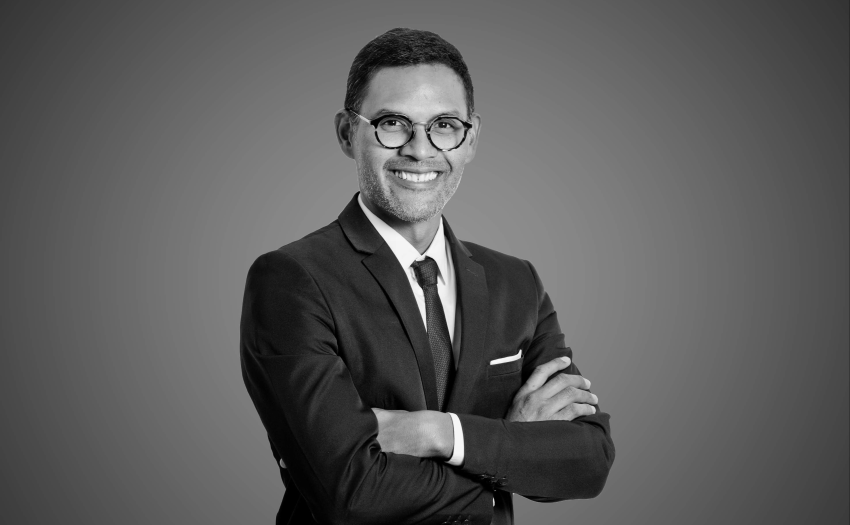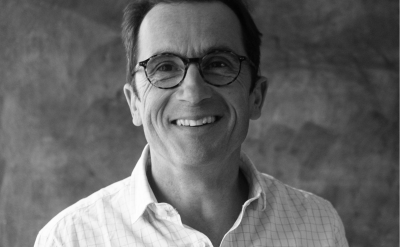News

Nanrindra Ravelojaona (SK 2006): “Entrepreneurship is a school of life”
“Expatriates” are people who leave their country of origin, and “repatriates” are those who return to their country of origin. Let’s introduce a new phenomenon: dual citizens who leave their country of birth to discover their second motherland. This is the case for Nanrindra, a SKEMA alumnus, who chose to leave France for Madagascar, his country of origin. After spending some ten years working as a consultant for various banks, in 2018 he did a 180-degree turn. He began an entrepreneurial, cultural and life-affirming adventure in Madagascar.
Can you tell us about your education and work experience?
During my studies at SKEMA Business School, I had the opportunity of being selected (rate of 3%) for a combined work/study programme at one of the major banks, learning about wealth management. This way I was able to learn a “specialised” profession, my tuition fees were paid for me, and I received a salary.
Early specialisation was quite sought-after on the job market. I received several job offers before I’d even graduated. In the end I said yes to the ambitions of a competing bank. Unfortunately, in 2008, the subprime mortgage crisis and the way the Kerviel case was handled really put off many of my colleagues. To my great surprise, despite the scale of that financial crisis, our “specialised” professions were still very much in demand with headhunters, because we were in close contact with the customers. So I joined a major bank in La Défense, Paris, to manage their key accounts. They had arranged for me to pick up my contract, but the way I was welcomed by HR that day just because my wife had accompanied me left me very uneasy. I am driven by instinct above all, and by emotional intelligence. I never sent back the contract and within 48 hours I received a call from another recruitment firm for a different bank, in a part of France I didn’t know. Three days after the interview with the boss, I was taking up my new position in a group where I would spend more than ten years, working in private banking and then internal auditing, which at the time was the place to be and the only way to access the most senior positions.
But life has a way of throwing curve balls and my wife and I were giving serious thought to what we wanted from our lives and careers. My wife (a graduate of Toulouse Business School) and I both have dual French and Malagasy citizenship, but neither of us had ever lived in Madagascar. We really wanted to discover this country and use our brainpower to contribute something positive. We also have three young children and it was important for us that they discover the country as early as possible. We felt it important to show them that there is more to the world than France or Europe; that there are other realities. So we decided to take a three-year sabbatical to give our Madagascar adventure a go and put our minds to work for our second country.
What was your goal when you founded the Sakalava Capital group in Madagascar?
Madagascar is one of the five poorest countries in the world and it suffers a great deal from brain drain. Only 6% of the population has internet access, 60% of children don’t go to school, and the minimum wage is €50 per month. It is true that we could have chosen ease and security, we could have taken up senior positions in big, local companies. But for us, starting a business was the best way to have a direct and concrete impact by creating as many jobs as possible in our own small way.
So our goal was clearly to create jobs and share our knowledge ─ both our hard and our soft skills. Today, with some twenty jobs created, we are happy to be able to support around twenty families through employment. Both on a professional and a personal level, for us each day is an opportunity to instil a new style of management and share a different perspective.
At the root of this professional endeavour, there is therefore a life goal, a cultural, patriotic and people-centric endeavour.
However, in the beginning we were confronted with a number of difficulties, notably because there are still too few generally-accessible assistance programmes and schemes (e.g.: training, funding, statistics) for those starting businesses in Madagascar. Fortunately, overall, we have encountered more opportunities and prospects than constraints.
In concrete terms, what are the Sakalava Capital group’s actions at the local level?
The Sakalava Capital group is a family-owned holding company that works a bit like a family office. Concretely, we have access to capital that enables us to invest freely in projects chosen personally for their sustainable and innovative impact, and this without having to depend on external financing (from banks or investors).
The areas we invest in are real estate, tourism, the web, transport, consulting, security, and communication. There are times when we don’t find any projects that meet our CSR criteria. Those times are a chance for us to create the imagined venture ourselves.
For example, we wanted to invest in solidarity tourism based on a model whereby the customers are completely immersed in the daily lives of people living in the capital. Unfortunately, the current offering is restricted to accommodation (e.g.: hotels, airbnb, bed and breakfast, etc.), whereas we are convinced that some customers want to have authentic experiences locally and to move away from the sterile tourism experience that has nothing to do with the local reality.
We have therefore refurbished a building in a working-class area, to turn it into a guesthouse. It is located in the heart of a district that is filled with opportunities for human experiences, unique visits, authentic sharing, and exchanging intercultural knowledge and skills. Since the start of the year, we have welcomed our first tourists from Japan, Belgium, the USA, and Mauritius; they leave here with a head full of memories (www.villaespoir.com)
As for our personal experience, we were also looking for people to teach Malagasy to our children. Unfortunately, in terms of quantity the offering was near to nil and in terms of quality it was very limited too, with a very formal approach. So we created an offering by spending a lot of time looking for teachers who were aligned with our vision (solid background, dynamic, and with a fun and participative approach to teaching).
Today, this offering is having some early success. We studied the market and extended our services to adults. The format we offer is very popular with them.
Even in such a simple domain, we continue to innovate by, for example, offering to learn the language through other formats like dance, theatre and crafts. This is also a way for us to share the Malagasy language and culture with expats, our main customers.
Also in the spirit of continuous innovation, we have invested in transport, communication, security, real estate, the web, and today we have created some twenty jobs locally.
Just as an anecdote, we have just this month been nominated in the top 10 of young entrepreneurs for 2019. This prize was created by the country’s leading bank and each year it is awarded in person by the French president.
Today, our goal is to ensure the long-term viability of these ventures so that this impact can be as lasting as possible.
Have you stayed in touch with the SKEMA network since graduating?
Because I was doing a combined work and study programme while at SKEMA, I spent most of my time at work. Unfortunately, I didn’t manage to find the time to get involved in student associations and that didn’t change after graduating.
To be honest, I had this idea, and it’s probably a misconception, that the network is primarily useful for finding a job or growing a business. And since I’ve never had any trouble finding a job or advancing in my career, I never felt the need to turn to the SKEMA network.
These days, I am keeping up with SKEMA’s news more and more. I’m realising that besides the professional and business aspect, the network provides an opportunity to share experiences, values, know-how and cultures. For example, through the webinars, conferences, themed articles, events…
That’s why, after arriving in Madagascar, I got the idea of finding out whether there were other alumni over here, ten thousand kilometres away from SKEMA’s Lille and Sophia campuses. To my great surprise, it turns out that there are about fifteen SKEMA alumni in Madagascar. Now we just need to find the time to arrange a meetup!
What advice do you have for young SKEMA graduates that could help with their future career?
A SKEMA education has the advantage of providing students with excellent learning and material support. The SKEMA diploma alone can be a career accelerator for many graduates.
However, I think it is also very important to know how to generate your own opportunities from the people you meet and your life experiences. For this, it is fundamental to get to know yourself very well, to know your strengths, your limitations, and the areas needing improvement.
I also encourage everyone to give entrepreneurship a try, because it is a school of life that offers each of us the opportunity to write our own story and, why not, participate in a few other people’s stories. What’s more, we need lots of value creators, because there are so many solutions that need creating to address the countless needs of the future.
Contact: Nanrindra Ravelojaona (SK 2006), Co-founder of Sakalava Capital
Interview by lepetitjournal.com for SKEMA Alumni




